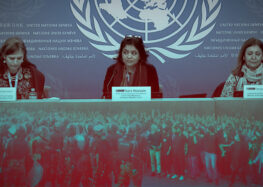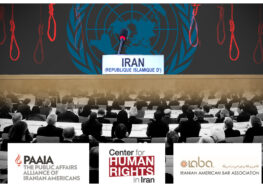Amputations and Floggings on the Rise
Hand Amputation Implemented, Official Foresees Death Sentences for Robbery
UN General Assembly Must Act
(13 October 2010) The Iranian Parliament and Judiciary should immediately abolish cruel and inhumane punishments, such as limb amputation, stoning, and flogging, consistent with Iran’s international obligations, the International Campaign for Human Rights in Iran said today.
In recent days Iranian officials have acknowledged that amputations have been carried out and an increasing number of flogging sentences have been issued for post-election protestors.
“These inhumane and barbaric acts are nothing but torture under international law and should be abolished,” said Hadi Ghaemi, the Campaign’s spokesperson.
The head of the Iranian delegation to the United Nation’s Human Rights Council in February and June 2010, Mohammad Javad Larijani, told the Council that Iran does not consider such punishments as torture and that they are culturally justified.
“There is nothing about Iranian culture that sanctions such cruelty and it is time for the UN to establish a monitoring mechanism to hold Iran accountable for grossly violating its international obligations,” Ghaemi said.
Iranian officials have promised to increase the use of amputation as a punishment for theft and will ask for the death penalty in some robbery cases, while some citizens convicted for expressing their political opinions have been sentenced to be flogged, the Campaign reported.
According to an 11 October 2010 report published by the semi-official Iranian Student’s News Agency (ISNA), Mahmoud Zoghi, the Prosecutor in the northeastern city of Mashad, reported on the amputation of the hand of a thief and said such sentences would be more widely applied, reflecting a “more rigorous approach.”
Zoghi further indicated that those charged with theft may face the death penalty, “Under a combination of circumstances, a thief’s actions could be construed as the crime of moharebeh, enmity with God, leading to the heavy sentence of execution,” he said, referring to Article 185 of the Islamic Penal Code. If the crime does not warrant the charge of moharabeh, amputations would take place in accordance with the Penal Code and the Koran, he said. Some hand amputations have been carried out in the presence of others charged with robbery, “so they could learn a lesson from it,” Zoghi announced.
On 21 February 2010, a convicted thief underwent “limb amputation” in Karoon Prison in the southern city of Ahvaz, Iranian media reported. According to a 19 June 2010 report by ISNA, during an introduction ceremony for the new Prosecutor, the former Ahvaz General and Revolutionary Courts Prosecutor, Davood Sadeghi, said that “over the past two years, we had six cases of amputations of hands and feet in order to carry out God’s Hadd punishment in Ahvaz, to which citizens have reacted positively and it has created satisfaction.” He also noted, “Over the past two years, 25 cases of executions were carried out in Ahvaz, 18 of which were related to drug smugglers and seven of which were mohareb [enemy of God] cases, and five of those seven individuals were armed robbers.”
On 11 October 2010, Gholamhossein Mohseni Ejei, Iran’s Prosecutor General, announced in a press conference that some of 61 suspects charged in the context of post- election unrest had been sentenced, some of them to flogging in addition to prison terms.
“Some of the convicts have been sentenced to flogging in addition to imprisonment, and in some cases the imprisonment and flogging sentences have been converted to cash fines,” he stated according to media reports. Ejei is among eight Iranian officials recently “blacklisted” and subjected to sanctions by the United States government for his grave human rights violations, and one of those documented in the Campaign’s “Men of Violence” report.
While amputation, flogging, and stoning to death are all legal punishments according to Iran’s Islamic Penal Code, they are considered torture, cruel and unusual punishment, and illegal under international human rights law.
In 2009, the United Nations General Assembly expressed its “deep concern at serious ongoing and recurring human rights violations in the Islamic Republic of Iran relating to, inter alia..[T]orture and cruel, inhumane or degrading treatment or punishment, including flogging and amputations,” as well as stoning.
The International Campaign for Human Rights in Iran calls for the abolition of all punishments inconsistent with Iran’s international legal obligations as a party to human rights covenants, and for Iran to abide by international customary law, which forbids torture.






